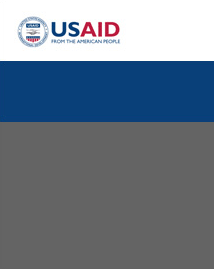Speeches Shim
USAID’s Government Integrity Project works in partnership with key Salvadoran government institutions and civil society organizations to improve government transparency and accountability. The project promotes citizen oversight and monitoring of public resources to reduce opportunities for corruption.
The effective implementation of laws and public policies on transparency, public ethics and accountability, accompanied by an active and informed citizenry, can reduce opportunities for corruption in El Salvador, leading the country to higher levels of citizen security and economic development that helps deter illegal immigration. Legal reforms adopted in recent years and an emerging and informed civil society creates an environment that fosters more transparent governance and enhanced integrity.
A vital piece in this process is the strengthening of the government institutions that enforce compliance with the Access to Information Law and the Government Ethics Law. USAID provides support and training to the Institute of Access to Public Information Office, the Government Ethics Tribunal, and a number of government ministries and municipalities to effectively comply with and enforce the laws. Activities include support for a network of public information offices in ministries and municipal offices with trained personnel that respond to inquiries.
There are now 120 Access to Public Information offices. Emblematic disclosure of information, ordered by the Institute, has triggered investigations on illicit enrichment, waste and abuse of public funds, and nepotism, including cases against two former presidents.
USAID is also working with 30 municipalities that are part of El Salvador’s security plan to improve integrity and accountability at the local level and increase access to public information. In addition, the project supports coordination between Salvadoran government institutions (Supreme Court, the Attorney General and the Supreme Audit Authority) to effectively combat corruption.
USAID also promotes civil service reform to professionalize civil service and to make the process of recruitment, selection, and retention of public officials and employees more transparent and with merit-based standards. This is complemented with assistance to a civil society alliance advocating for reforms in this important area.
The project also includes a grants fund available for civil society organizations to promote transparency and citizen monitoring of the use of public resources. In addition, civic education campaigns increase awareness and use of transparency regulations, with special emphasis on vulnerable populations.


Comment
Make a general inquiry or suggest an improvement.